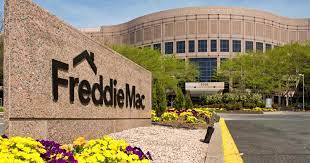
To rein in corporate landlords, federal government must use power of Freddie Mac
February 8, 2023
In 2020, the private equity firm CIM Group purchased Southern Towers, a five-building apartment complex of over 2,000 units in Northern Virginia. For decades, Southern Towers has been home to thousands of hardworking blue-collar families, many of whom are African immigrants.
The deal was financed with the help of a 10-year, $346 million loan with a 2.2% interest rate from Freddie Mac.[1]
Tenants hoped that CIM would bring positive changes to the complex, but mold, pests and other maintenance issues continued to go unresolved and CIM filed hundreds of eviction notices during a nationwide ban on evictions.[2] In its first six months of owning Southern Towers, CIM filed over 500 eviction notices against 255 households during the federal eviction moratorium.[3]
These and other actions by CIM run contrary to Freddie Mac’s purpose of providing and preserving affordable workforce housing, yet Freddie Mac has taken no action against CIM, and CIM remains eligible to receive financing from Freddie Mac for future acquisitions.
Over the past decade, private equity firms such as CIM have been on a massive buying spree, purchasing apartments such as Southern Towers all across the country and now own over a million units. This buying spree has been enabled by Freddie Mac, a government-sponsored corporation that is the largest financier of rental housing in the U.S.[4] Freddie Mac buys loans from lenders so those lenders can make more mortgages to other borrowers. Freddie Mac then pools these mortgages into securities that it sells to investors.
Private equity firms accounted for 85% of the 20 largest apartment purchases financed by Freddie Mac.[5]
As with CIM’s practices, the private equity business model is directly counter to Freddie Mac’s mission of providing and preserving affordable housing. “Private equity firms often act like a corporate version of a house flipper: They seek deals on apartment buildings, slash costs or hike rents to boost income, then unload the buildings at a higher price.”[6]
For instance, Blackstone, which owns at least 100 properties financed by Freddie Mac, estimates that in the coming year, it can increase rents 20% higher than it is currently charging.[7]
The White House Blueprint for a Renters Bill of Rights, released last month, is a step in the right direction, but falls short of reining in corporate landlords and providing tenants the protections they urgently need. It is significant that the White House acknowledges the hardships currently faced by tenants and recognizes that there is a role for the federal government in addressing these problems. However, the plan does little to provide actual relief to tenants.
Tenant organizations affiliated with the advocacy organization People’s Action had called on the White House to ensure that the Federal Housing Finance Agency (FHFA), which supervises Freddie Mac, require tenant protections be in place as a condition to receive federal financing,[8] including:
- Limiting annual rent increases to a maximum of 3%
- Prohibiting evictions unless there have been serious and repeated lease violations
- Maintaining properties and making necessary repairs.
People’s Action also called for enforcing tenant protections by removing federal funding from the most egregious violators of tenants rights.
Instead, the White House announced that that FHFA and Freddie Mac will “launch a process to conduct stakeholder outreach and engagement to identify the opportunities and challenges of adopting and enforcing tenant protections including policies that limit egregious rent increases.”
While critical of the White House plan for not “using the full power of the administration to regulate rents and address market consolidation by corporate landlords,” People’s Action said that the plan “introduces potential for agency-level action” and “offers an opportunity for FHFA to continue working with tenants to create a policy that helps check the power of landlords.”
[1] https://www.businessinsider.com/southern-towers-apartment-tenants-battle-investor-landlord-2022-11
[2] https://www.businessinsider.com/southern-towers-apartment-tenants-battle-investor-landlord-2022-11
[3] https://www.businessinsider.com/southern-towers-apartment-tenants-battle-investor-landlord-2022-11
[4]https://www.propublica.org/article/when-private-equity-becomes-your-landlord
[5]https://www.propublica.org/article/when-private-equity-becomes-your-landlord
[6] https://www.propublica.org/article/when-private-equity-becomes-your-landlord
[7]https://www.ft.com/content/d02a59fb-493a-427a-849a-9acbd576cdbf
